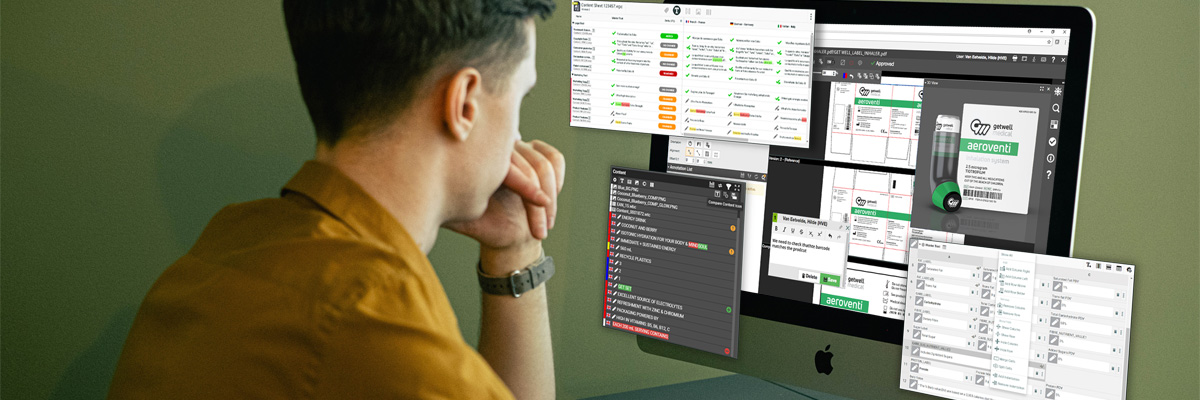The current COVID-19 pandemic has sent shockwaves throughout the world. As a result, many industries have been forced to adapt. Restaurants are desperately trying to stay afloat by offering take out and delivery. News stations are having reporters report from their homes (with humorous results). The sports industry is trying to think of creative yet logistically nightmarish scenarios in which to resume games.
It’s safe to say that everyone is feeling the effects of this virus. This includes the pharmaceutical industry, which has had to look for creative solutions to ensure that their customers get the medicine they desperately need during these times.
There are many challenges that pharmaceutical companies have been experiencing in the supply chain, and there are strategies to help combat those challenges.
The Challenges for Pharma Companies in These Unprecedented Times
The most significant change to social norms that we’ve been experiencing during the Coronavirus pandemic is the fact that people are staying home and avoiding going out to run errands. While those that make up the less vulnerable portion of the population can acquire groceries and pharmaceutical drugs with lower risk as long as they adhere to social distancing guidelines, it’s much more difficult for those that fall in the high-risk category.
But getting the drugs to the recipients is only half the battle. For many people, they not only need these drugs to combat potentially-life threatening health issues, but they need them in a timely fashion. Unfortunately, in many parts of the United States, there aren’t enough delivery services that can deliver drugs on time—particularly in rural areas. Plus, delivery times have been taking longer to ensure warehouses and packing plants have adequate time to sanitize areas.
Also, there is heavy competition for pharma companies to get their drugs on that delivery truck. As a result, pharma companies are forced to look elsewhere as UPS trucks can’t get there fast enough or don’t have the space to carry their product supply.
How Pharmaceutical Companies Are Combating These Challenges
The key to success during these times is to continue innovating. However, that is easier said than done.
Pharmaceutical companies have had to get pretty creative to help them through that last mile of the delivery process—the most notable of which is the use of crowdsourced solutions, like Roadie.
While options like UPS are being overloaded and therefore can’t fit everything or can’t reach locations fast enough, crowdsourcing options such as Roadie can help alleviate that burden and get drugs to those who need them fast.
Roadie is just like any other delivery service. Drivers will pick-up pharmaceutical drugs from pharmacies and bring them directly to the homes of those who can’t go out and get them on their own. Because of the sensitive and even life-changing nature of some of the drugs being delivered, these crowdsourcing companies have to take extra steps to ensure safety for the end-consumer.
For example, pharma companies should ensure that the delivery services they work with complete background checks of their drivers. They should also be trained on HIPAA guidelines and important information on how to deliver the drugs safely.
Some pharmaceuticals need to be refrigerated or maintained at a specific temperature during transit. With Roadie, if an item needs to be refrigerated, the pharmacy will let them know so that they can alert the driver to bring a cooler. The item can then be placed in a cooler and the drug is unaffected by the travel.
In the pre-COVID world, pharmaceutical drugs would need to be signed for so that they are not left unattended. But, signing a piece of paper or digitally signing on a phone screen creates the opportunity for germs to be spread. Because of this, these delivery services are instead having their drivers sign their names and then take down the name of the recipient. This allows the company to still record deliveries and create a delivery log.
Pharmaceutical companies should inquire with delivery service providers to see if they are taking the necessary steps to ensure that patient health information (PHI) isn’t visible to those who shouldn’t have access to it. In this case, that is the driver.
In order to avoid delays and late deliveries, pharmaceutical companies should also confirm that the delivery service provider has its drivers delivering on a point-to-point basis. Instead of picking up multiple products and making the rounds, the driver should be going straight from the point of pick-up to the patient every time.
Going Forward & the Lasting Impact of COVID-19
During this time, pharma companies need to be proactive. Instead of waiting to see what happens, they should look to innovate and meet their consumers’ needs as efficiently as they can. Although it certainly won’t be business as usual, how can businesses look for inventive solutions that will allow them to stay in business?
COVID-19 is introducing older generations to the benefits of drug delivery services. It’s likely that even when the virus is eradicated, many of them will continue to use these services. For pharma companies, the time to get acquainted with such services is now.










